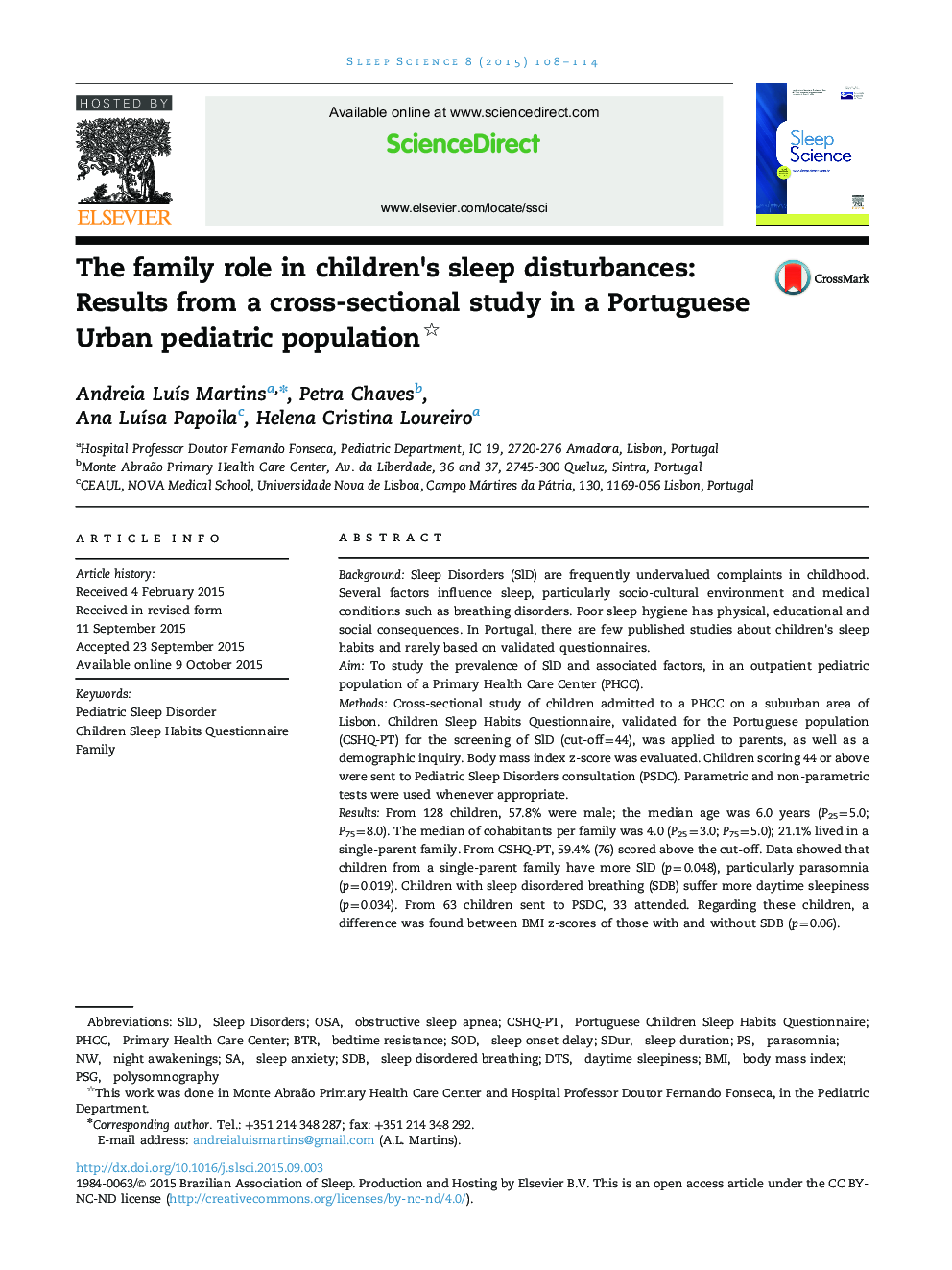| کد مقاله | کد نشریه | سال انتشار | مقاله انگلیسی | نسخه تمام متن |
|---|---|---|---|---|
| 3026768 | 1182918 | 2015 | 7 صفحه PDF | دانلود رایگان |
BackgroundSleep Disorders (SlD) are frequently undervalued complaints in childhood. Several factors influence sleep, particularly socio-cultural environment and medical conditions such as breathing disorders. Poor sleep hygiene has physical, educational and social consequences. In Portugal, there are few published studies about children׳s sleep habits and rarely based on validated questionnaires.AimTo study the prevalence of SlD and associated factors, in an outpatient pediatric population of a Primary Health Care Center (PHCC).MethodsCross-sectional study of children admitted to a PHCC on a suburban area of Lisbon. Children Sleep Habits Questionnaire, validated for the Portuguese population (CSHQ-PT) for the screening of SlD (cut-off=44), was applied to parents, as well as a demographic inquiry. Body mass index z-score was evaluated. Children scoring 44 or above were sent to Pediatric Sleep Disorders consultation (PSDC). Parametric and non-parametric tests were used whenever appropriate.ResultsFrom 128 children, 57.8% were male; the median age was 6.0 years (P25=5.0; P75=8.0). The median of cohabitants per family was 4.0 (P25=3.0; P75=5.0); 21.1% lived in a single-parent family. From CSHQ-PT, 59.4% (76) scored above the cut-off. Data showed that children from a single-parent family have more SlD (p=0.048), particularly parasomnia (p=0.019). Children with sleep disordered breathing (SDB) suffer more daytime sleepiness (p=0.034). From 63 children sent to PSDC, 33 attended. Regarding these children, a difference was found between BMI z-scores of those with and without SDB (p=0.06).ConclusionFamily structure plays a non-negligible role in children’s sleep habits. Daily performance of children with SDB may become compromised.
Journal: Sleep Science - Volume 8, Issue 3, November 2015, Pages 108–114
